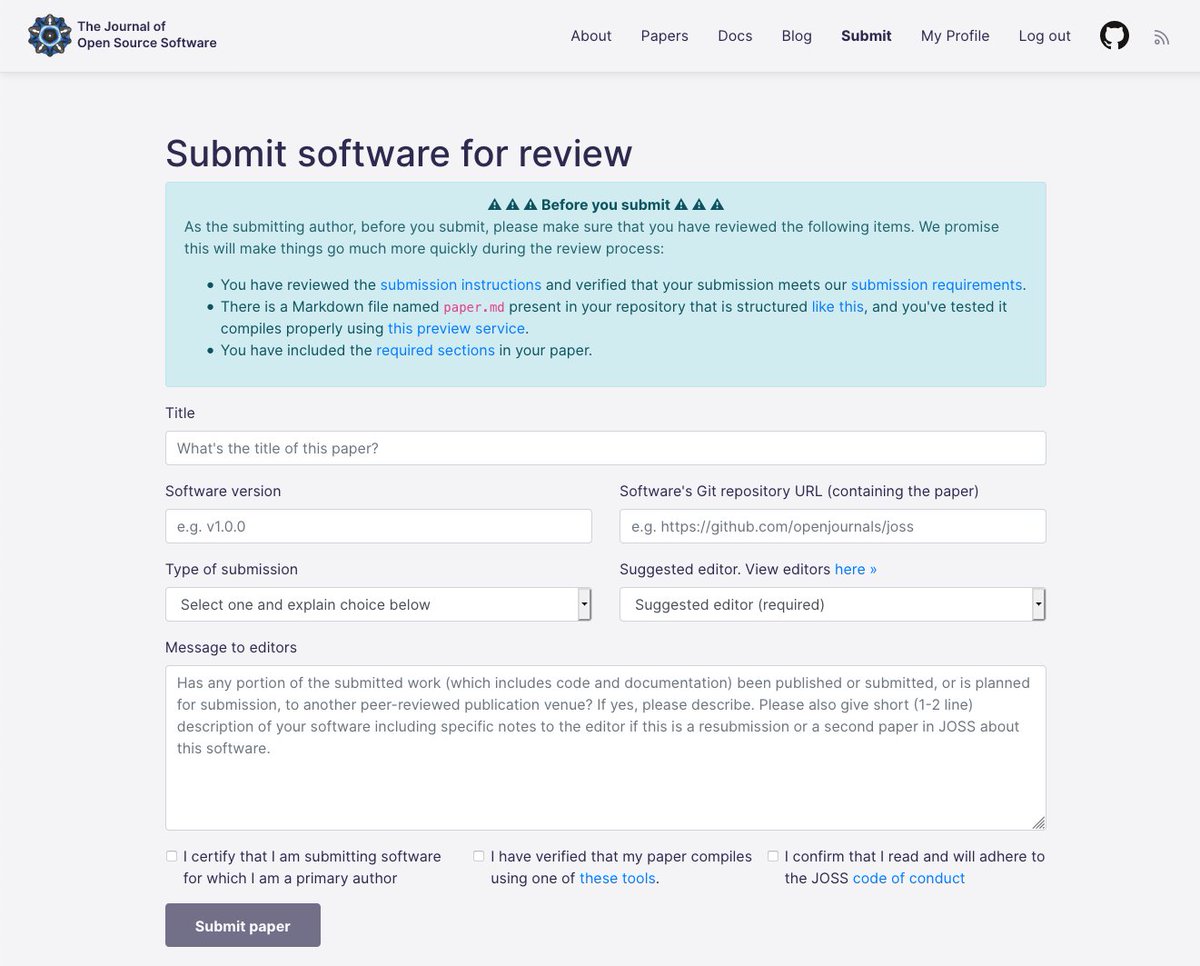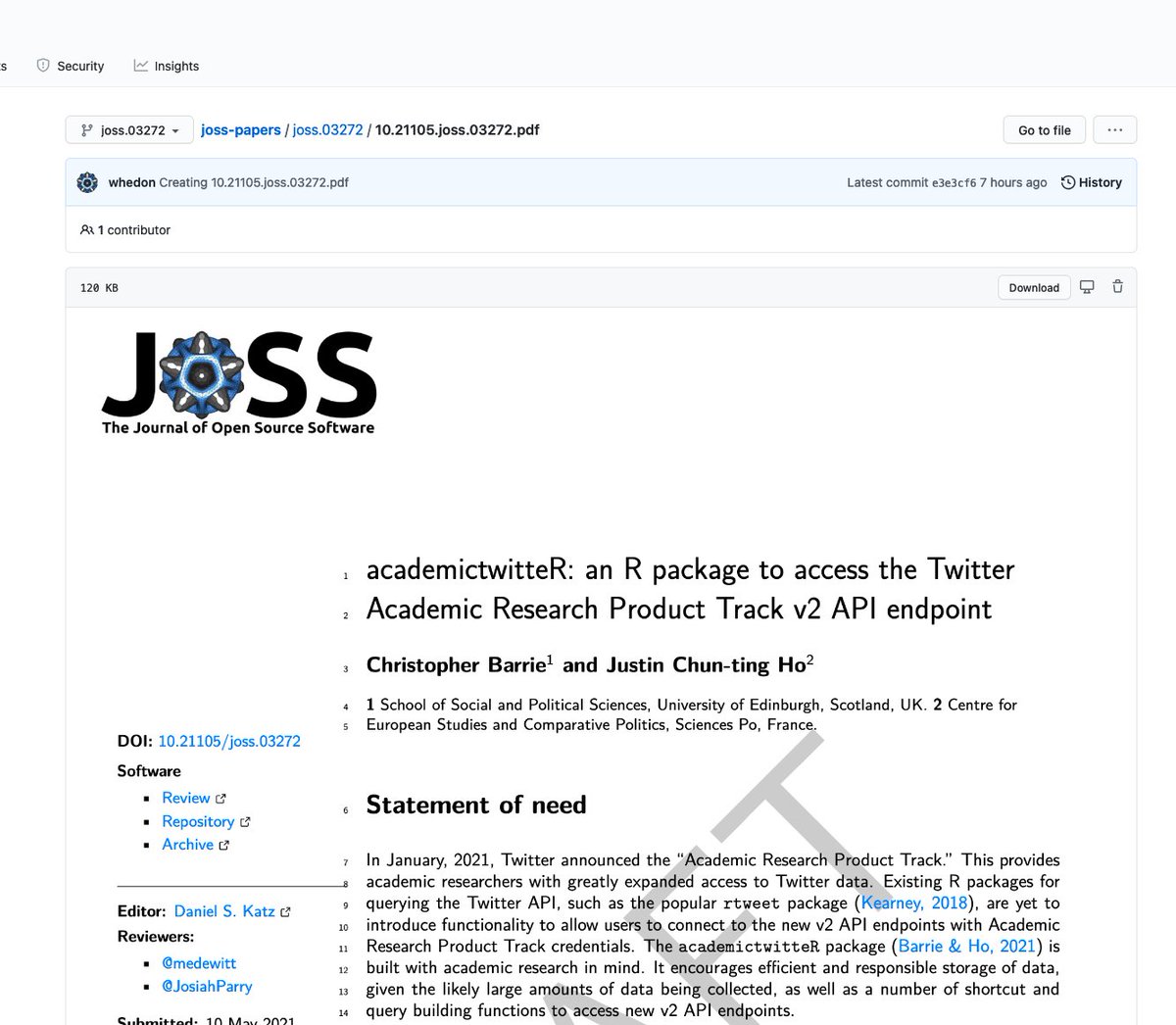Would encourage all editors to read this reflection from @danielskatz and @arfon on experiences with @JOSS_TheOJ
 https://abs.twimg.com/emoji/v2/... draggable="false" alt="🧵" title="Thread" aria-label="Emoji: Thread"> follows with own experience submitting to @JOSS_TheOJ https://scholarlykitchen.sspnet.org/2021/05/06/guest-post-starting-a-novel-software-journal-within-the-existing-scholarly-publishing-ecosystem-technical-and-social-lessons/">https://scholarlykitchen.sspnet.org/2021/05/0...
https://abs.twimg.com/emoji/v2/... draggable="false" alt="🧵" title="Thread" aria-label="Emoji: Thread"> follows with own experience submitting to @JOSS_TheOJ https://scholarlykitchen.sspnet.org/2021/05/06/guest-post-starting-a-novel-software-journal-within-the-existing-scholarly-publishing-ecosystem-technical-and-social-lessons/">https://scholarlykitchen.sspnet.org/2021/05/0...
My paper with @justin_ct_ho is now under review there. Whatever the outcome, the experience reveals how much better academic publishing can be at submission stage.
How does it differ?
How does it differ?
Paper is uploaded in .md format in host Github repo. Submission then involves simply providing link to the authors& #39; relevant repo. It takes two minutes.
Paper is then automatically rendered into JOSS journal format and made available as proof to reviewers and authors
Reviewers are then suggested by authors and assigned to the paper with minimal editorial labour using a bot: https://github.com/openjournals/joss-reviews/issues/3271">https://github.com/openjourn...
The paper then goes to review stage in a separate issue, with associated checklist and open---public---discussion about the software and associated paper: https://github.com/openjournals/joss-reviews/issues/3272">https://github.com/openjourn...
Submission to review stage was completed within the day.
But maybe they& #39;re staffed by a massive team and huge grant funding this whole operation?
But maybe they& #39;re staffed by a massive team and huge grant funding this whole operation?
Nope: total cost, founders report, of $3 per paper reviewed, including web infrastructure, CrossRef, and Portico fees.
How to shift to this model? Well, a start would be to fork their open source software.
Scientific publishing can and should change.
How to shift to this model? Well, a start would be to fork their open source software.
Scientific publishing can and should change.

 Read on Twitter
Read on Twitter



